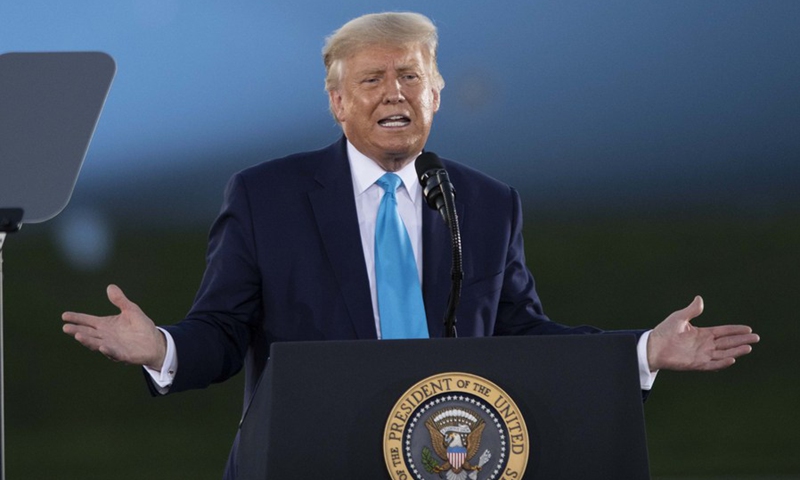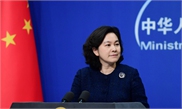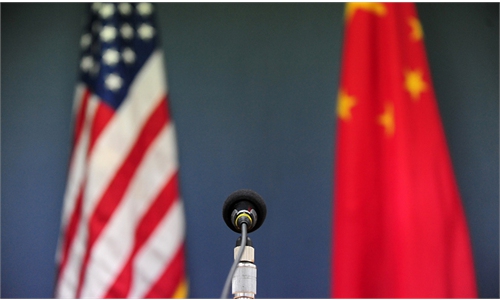
File photo taken on Sept. 3, 2020 shows US President Donald Trump participating in a campaign rally in Latrobe, Pennsylvania, the United States. (Xinhua/Liu Jie)
The US is at risk of a systemic crisis, observers said, as US President Donald Trump is still trying to overturn his election defeat by threatening Georgia Secretary of State Brad Raffensperger to find enough votes, days before Congress meets on Wednesday to formally count the votes from the Electoral College.
Chinese analysts said on Monday that although Trump's and Republican politicians' challenges may not affect the final result, they undermine the authority of the US electoral system and Western democracy.
According to details of an audio recording revealed by the Washington Post, Trump flattered, begged and threatened Raffensperger, a Republican, to find 11,780 votes [Biden clinched the victory in Georgia by 11,779 votes].
Carl Bernstein, a veteran journalist who uncovered the 1972 Watergate scandal that led to the resignation of then-president Richard Nixon, recently described Trump as a "subversive president," who is willing to "undermine the electoral system and illegally, improperly and immorally try to instigate a coup," the Huffpost reported.
Concerning the involvement of the armed forces, 10 former US defense secretaries on Sunday jointly declared opposition to Trump's efforts to subvert the election, which could drag the US into a "dangerous, unlawful and unconstitutional territory," the CNN reported.
Some US legal experts said that Trump's move is a "textbook definition of election fraud," the Washington Post said.
Chinese experts reached by the Global Times said the architects of the US system may not have expected there will be a Trump presidency to do great damage to the whole system. However, the US system cannot be assumed to be restored after Trump leaves the White House, as Trump is a reflection of the US crisis, not merely a cause.
The current system as designed is unable to cope with the changing situation, the two parties and the separation of powers failed to fully reflect diverse interests, and whether the Supreme Court can make a reasonable decision has also become a question of doubt, Wang Yiwei, director of the Institute of International Affairs at Renmin University of China, said in describing the US' dilemma.
Wang said that the benefits of globalization vary from state to state in the US, from the coast to the interior, from New England to the Sunbelt. The disparities intensify conflicts by industry, race and class, which explains Biden's choice of cabinet members, bridging the contradiction on the surface.
Lü Xiang, a research fellow at the Chinese Academy of Social Sciences in Beijing, told the Global Times on Monday that a "constitutional crisis", which was widely discussed in the US media during the campaign last year, is a strong word, and there is no sign of nationwide disorder so far, but the current situation in the US shows that the process of power transition "would be nasty."
The challenges launched by Republican senators and representatives in the House will extend the process but won't affect the result. But the biggest damage to the US political system is that all of those farces during and after the election make other countries lose faith in the consistency and certainty of US policymaking, Lü said.
At least 12 GOP senators, nearly one-quarter of Senate Republicans, have announced plans to challenge US president-elect Joe Biden's Electoral College win on Wednesday, US media outlet Politico reported.
The "system advantages" of the US in the past may not always adapt to the new environment. Without adjustment, it is impossible to stay ahead and it may even cause internal divisions, said Wang.
"The Chinese believe in the philosophy of change. The recent signing of the RCEP and completion of China-EU investment agreement talks show China's determination to reform… The US should not be arrogantly convinced that its system is the best, forcing others to copy it," said Wang.
Hua Chunying, spokesperson of the Chinese Foreign Ministry, suggested to the Global Times at Monday's press conference to conduct a poll about how Chinese people view the US. She spoke in response to a question about the US State Department's latest groundless accusation on Monday, which claimed that the Communist Party of China "undermines the international rule of law."
In a poll released by the Global Times in December, 65.6 percent of participants found the Trump administration to be "unfavorable," while more than 70 percent believed that China had more and more advantages in competition with the US.
On the US meddling in China's domestic affairs in Taiwan, Xinjiang and Hong Kong, 81.7 percent of nearly 2,000 Chinese participants across 16 major cities of China held a stance of "firmly oppose."
"The US political system is unable to keep unreliable figures from being elected and it's also unable to effectively contain the president from making trouble in the international order. This is the key damage to the credibility of the US system," Lü noted.
Most Chinese people see the US presidential election 2020 as a "low-quality talk show" rather than a chance to learn something advanced from the West, as more and more people find the US system is unable to ensure its elected leaders are reliable and keep them from making dangerous and irrational decisions to harm the country and the world, analysts said.
"Biden will find it very difficult to convince US allies and other countries to believe that Trump or Trump-like politicians won't be elected again. That's why more and more countries, even US allies like the EU members and Japan, are reluctant to tie their own interests too closely to US hegemonic interests," Lü said.
"That's why they want to stand closer with China on the regional free trade issue and bilateral investment treaty, even if these choices could offend the US badly," Lü said.




